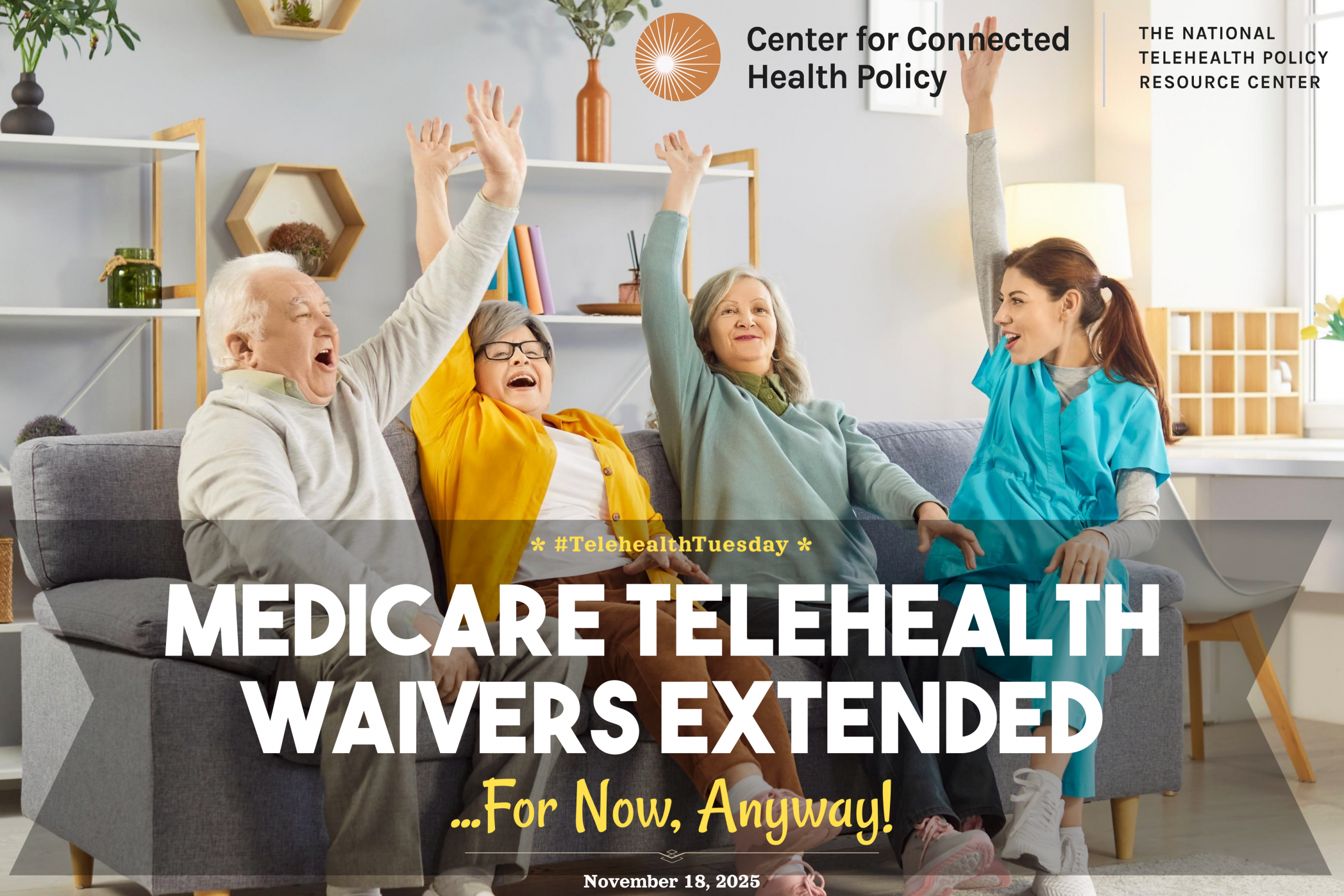SPANISH: Your Telehealth Visit (resource for the IDD community)
SPANISH VERSION: In this short animated video we review what patients can expect during their telehealth visit.
-
-
- One pager accompaniment: Final Video Screen Image
-
SPANISH VERSION: In this short animated video we review what patients can expect during their telehealth visit.

As families gather around tables filled with tradition and gratitude, we’re reminded how much access—whether to food, warmth, community, or care—shapes our wellbeing. In the telehealth world, access takes many forms. Recently, we’ve seen this reflected not only in the extensions of the Medicare telehealth waivers, but also in the DEA’s ongoing efforts to extend flexibilities around the in-person requirement for prescribing controlled substances. Once again, continued access to essential telemedicine services is at the forefront.

Last week, after agreeing to a deal to end the federal government shutdown, Congress passed a continuing resolution that would reopen the government, at least through January 30, 2026. Within the continuing resolution package was an extension of the Medicare telehealth waivers, which had previously expired on October 1, 2025 (NOTE: The package contained several divisions, however the link provided in this newsletter only goes to the section containing the telehealth items). In the passed legislation, the telehealth waivers that had expired will now be extended through January 30, 2026.

CCHP’s November newsletter is here! This month’s topics include – Final 2026 Medicare Physician Fee Schedule – CCHP Releases Analysis of Telehealth Policies; Medicare Telehealth Policy Remains in Flux; Two Long-Awaited Licensure Compacts Go Live: ASLP-IC and the Counseling Compact; VA Finalizes Telehealth Practice Rule, Clarifies Federal Preemption and Controlled-Substance Standards; 50 State Telehealth Policy Report Release & Winter Update of CCHP’s Telehealth Policy Finder; Study Finds Virtual Transition-of-Care Clinics Reduce 30-Day Readmissions by 26%.
This factsheet reviews the Final Physician Fee Schedule (PFS) for CY 2026 as it pertains to telehealth.